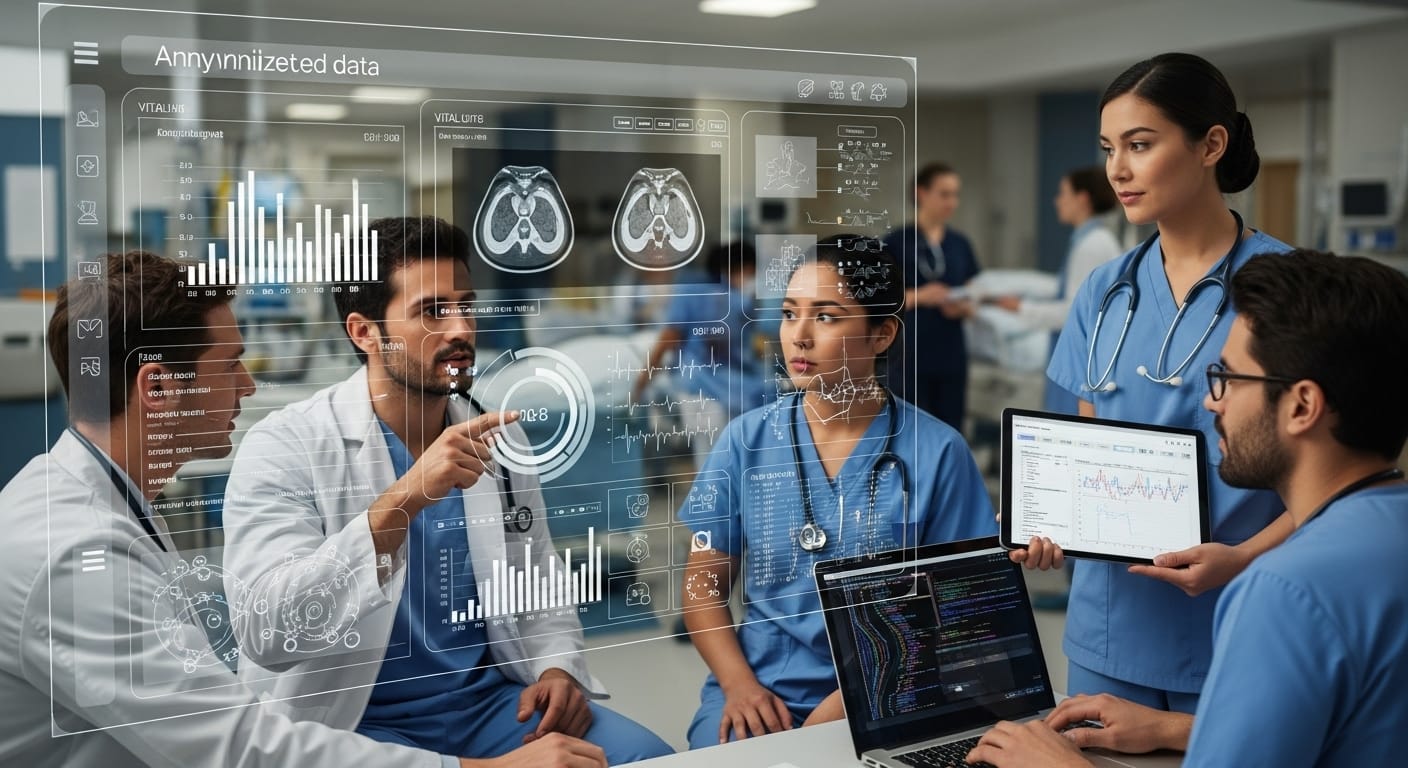The picture of a healthcare skilled has lengthy been related to stethoscopes, white coats, and the rapid, private contact of affected person interplay. Whereas these core components stay very important, a seismic shift is underway, pushed by the exponential progress of knowledge and its profound integration into each side of healthcare. This fusion of knowledge science and affected person care is not only a technological pattern, it’s a catalyst for an thrilling growth of profession alternatives, demanding new talent units and redefining current roles.
The next are some methods wherein knowledge and affected person care are positively affecting healthcare.
Information in Healthcare
Healthcare generates an unimaginable quantity of knowledge each day. From digital well being data (EHRs) and diagnostic imaging to genomic sequences, wearable gadget outputs, and medical trial outcomes, this info holds the important thing to unlocking unprecedented insights. Early on, this knowledge was typically siloed and underutilized, accessible solely by way of guide evaluation. Nonetheless, developments in computing energy, synthetic intelligence (AI), and machine studying (ML) have remodeled this deluge right into a wealthy useful resource, ripe for exploitation.
This knowledge revolution is essentially altering how we perceive, diagnose, deal with, and stop sickness. Personalised drugs, fueled by genomic knowledge, tailors therapies to a person’s distinctive genetic make-up. And strong knowledge evaluation can optimize operational effectivity inside hospitals, main to higher useful resource allocation and finally improved affected person outcomes.
Rising Roles
This data-centric transformation is creating a requirement for totally new skilled classes and considerably evolving current ones. Listed here are some key areas the place careers are burgeoning:
- Well being Informatics and Information Science Specialists: Well being Informaticians bridge the hole between medical apply and knowledge administration. They design, develop, and implement programs for amassing, storing, and analyzing well being knowledge. Information scientists, then again, possess superior statistical and computational expertise to extract significant patterns and insights from advanced datasets. They construct predictive fashions, develop algorithms for diagnostic help, and contribute to analysis that drives evidence-based apply.
- Medical Information Analysts: For anybody questioning what you are able to do with and MHA diploma or different masters and doctorate degree applications have to supply the healthcare business, contemplate this: Whereas knowledge scientists would possibly deal with broader, foundational fashions, medical knowledge analysts are extra straight concerned in deciphering knowledge inside particular affected person care contexts. They translate uncooked knowledge into actionable info for clinicians, directors, and researchers, making certain that data-driven choices are knowledgeable and efficient.
- AI/ Machine Studying Engineers in Healthcare: The appliance of AI and ML in healthcare is quickly increasing, from drug discovery and improvement to customized therapy suggestions and robotic surgical procedure. AI/ML engineers are the minds behind these subtle programs. They develop, prepare, and deploy algorithms that may be taught from knowledge and carry out duties that historically required human intelligence.
- Bioinformatics and Genomics Professionals: The explosion of genomic knowledge has opened up immense prospects in understanding illness etiology and growing focused therapies. Bioinformaticians and genomics specialists analyze DNA and RNA sequences, figuring out genetic predispositions to ailments, understanding gene expression patterns, and contributing to the event of gene therapies and customized therapies.
Embracing Information
It’s not nearly creating new roles, current healthcare professionals are additionally being empowered and challenged by this knowledge revolution. Physicians, nurses, pharmacists or pharmacologists, and therapists are more and more anticipated to be data-literate. They should perceive interpret knowledge offered to them, leverage AI-powered resolution help instruments, and contribute to the continuing assortment and validation of medical knowledge.
Physicians are benefiting from AI-driven diagnostic aids, customized therapy plans, and predictive analytics that flag high-risk sufferers. Nurses can make the most of knowledge dashboards to watch affected person very important indicators remotely, anticipate potential issues, and optimize care supply. Pharmacists are utilizing knowledge to personalize remedy regimens and establish potential drug interactions.
The Future is Interconnected
The intersection of knowledge and affected person care will not be a fleeting pattern however the way forward for healthcare. As know-how continues to advance, so too will the alternatives inside this dynamic area. Professionals who can bridge the worlds of know-how and drugs – those that can perceive advanced knowledge, develop revolutionary options, and translate them into tangible enhancements in affected person well-being – will likely be on the forefront of shaping a more healthy tomorrow. This convergence guarantees a healthcare panorama that’s extra exact, proactive, customized, and finally, simpler than ever earlier than.

